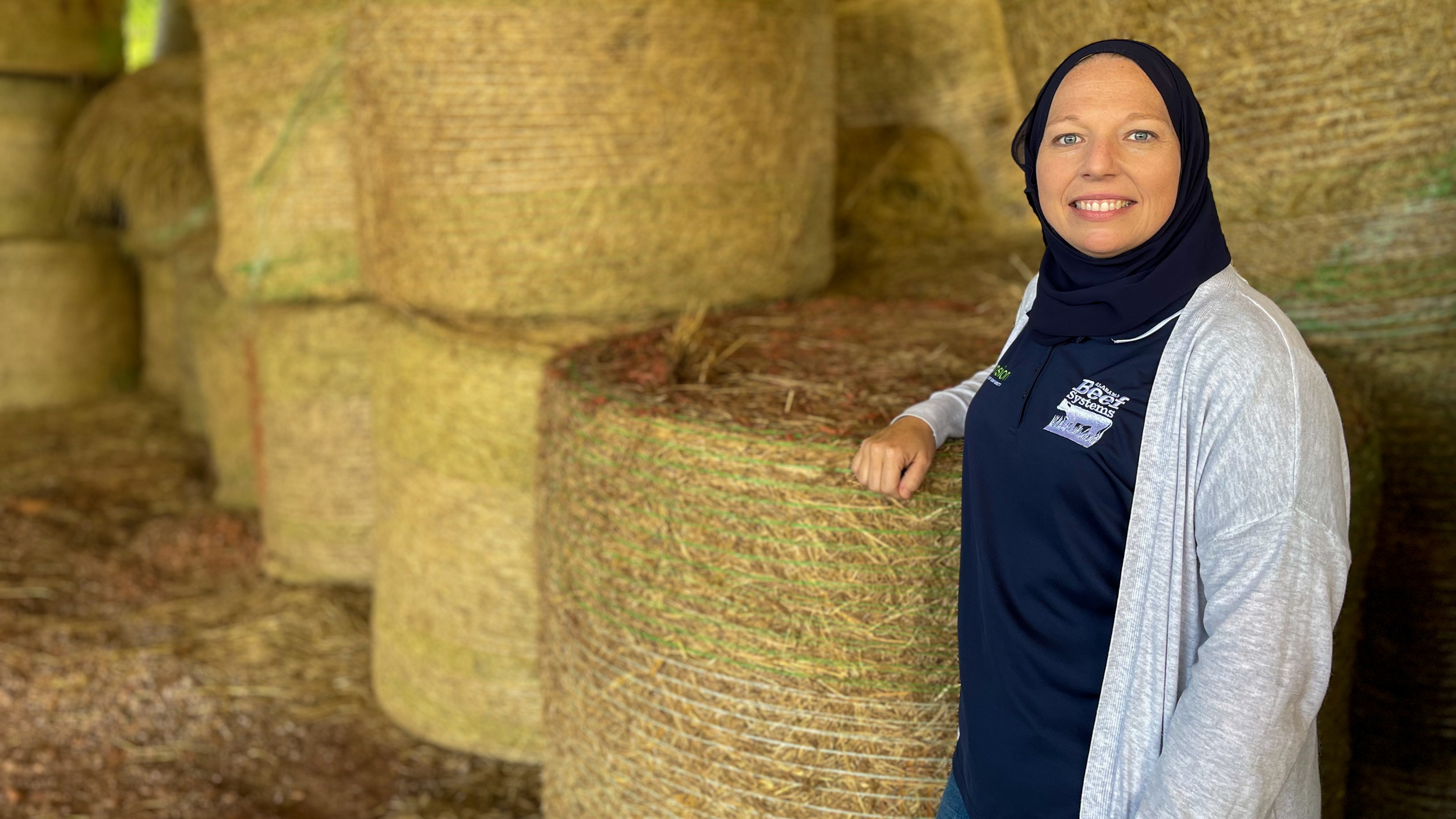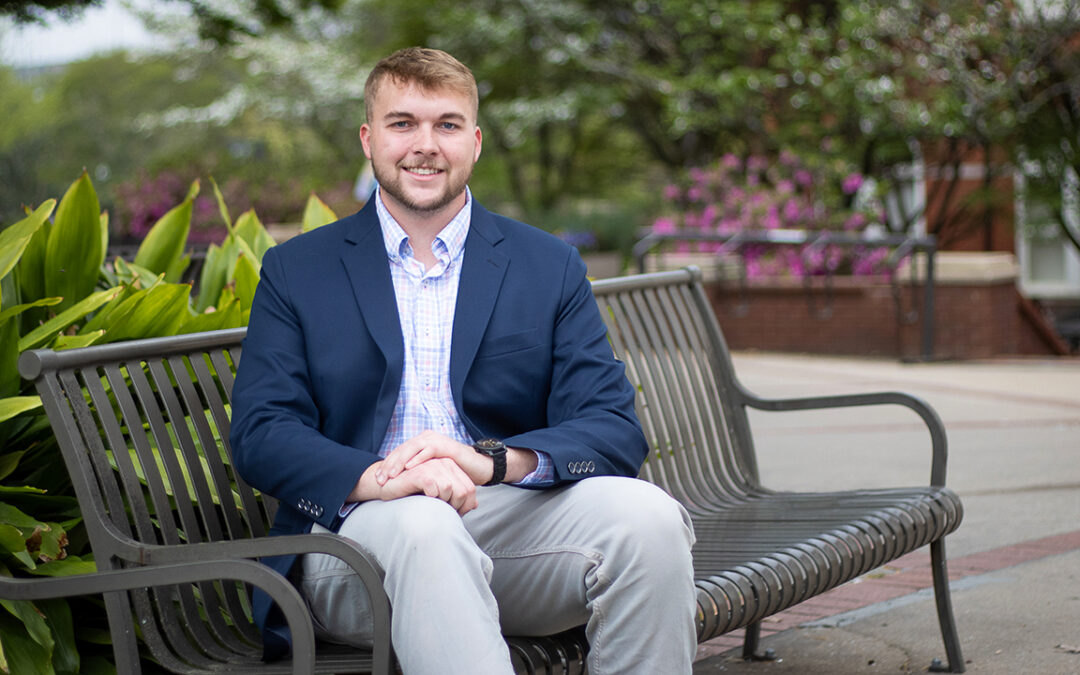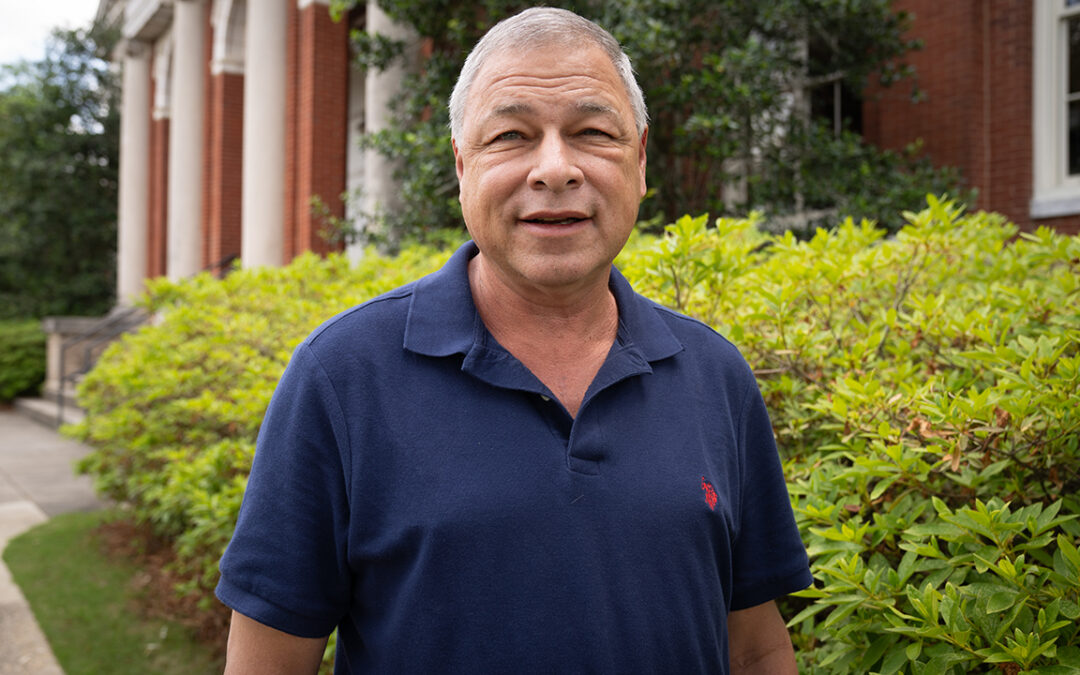The Road Back: Leanne Dillard shares her agriculture story
By Justin Miller
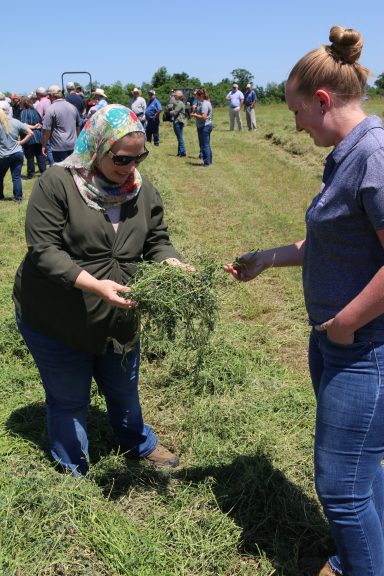 A desire to work in agriculture is something that many people have from an early age.
A desire to work in agriculture is something that many people have from an early age.
But the story of Leanne Dillard is quite different. Early in her life, she wanted nothing to do with agriculture. So, how did she end up an Extension forage specialist and college professor? Dillard’s story is made up of different experiences and opportunities — all of which put her on the road back to agriculture.
Dillard’s story begins in the mountains of northwest Georgia, where Dillard was raised on a poultry and cattle farm. As Dillard put it, “The cows were pretty, but chickens paid the bills.” Growing up on a poultry farm often meant working on the farm both before and after school.
“I hated the chickens,” Dillard said. “Getting up at 4 a.m. to work before school and working after school, I just hated every bit of it. To me, that is what I thought all of agriculture was, and I wanted no part of it.”
So, when it came time to decide on a college, with her passion for biology, Dillard set her sights for the one place that she knew there was no agriculture: The University of Alabama at Birmingham (UAB). There she majored in biology and chemistry, which — unbeknownst to her — would be the first step she would take on the road back to agriculture.
“At UAB, one fortuitous thing right after another started to happen when I randomly took an ecology class,” Dillard said. “The professor was looking for an undergraduate researcher, and I thought that seemed cool. The research was on Caribbean marine sponges, of all things, but that is where I really fell in love with research and ecology.”
After graduating from UAB, Dillard asked herself the same question a lot of students ask: What do I do now? She had a degree in biology and chemistry but admits that she didn’t know much.
“You take one class on this and one class on that, but you really don’t have a depth of understanding on anything,” Dillard said. “So, I didn’t really feel qualified to do anything.”
The research she did with sponges was fun, but as a person who doesn’t like water, she knew marine biology wasn’t an option. However, still with a love for biology, she moved a little closer to the agricultural realm, thinking maybe veterinary school was a good fit.
A native Georgian, she knew the University of Georgia as the “cow college,” and she ironically turned her attention to Auburn University for veterinary school. Most Alabama residents know that Auburn is mocked by some and honored by others as the state’s own “cow college.” Dillard, thinking she had made a choice to get away from agriculture, would soon find herself smack dab in the middle of it.
“I went online to the Department of Animal Sciences at Auburn, and I emailed the person that looked the nicest to see if they had a position available,” Dillard said. “He was an animal nutritionist, and, lo and behold, he had a position. Ironically, it was using poultry litter to fertilize pastures.”
Talk about a full-circle moment. The Georgia farm girl who hated chickens was right back in it. Impressed with her experience in undergraduate research, this professor saw something in Dillard that she didn’t see in herself.
“He told me in my interview that if I came there, I wouldn’t apply for vet school, and that I would stay in research,” Dillard said. “I was thinking, no, I don’t like agriculture, and it is not my thing, but that is exactly what happened.”
Through this position, Dillard fell in love with a different side of agriculture that she didn’t know existed. She was amazed to discover that pasture systems have an ecology all their own. She continued this field of study at Auburn, graduating with a master’s degree and a doctorate.
Who would have thought that the first connection she made with ecology at UAB would lead her to what would be her life’s work? Two completely different areas of study, but both were connected by a road of experiences and opportunities.
“At 28 years old, after having three college degrees, I figured out what my thing was,” Dillard said. “All of the different paths I took merged into one. I realized that I was meant to work with farmers, helping them and the public understand how they support the environment. Yes, we want to make forage pastures more sustainable, but the story of how they are already sustainable doesn’t get told a lot. So, that is what I got passionate about it and what I wanted to do.”
When it comes to the world of forages, Don Ball, a former Alabama Cooperative Extension System forage specialist, is one of the most well-known professionals in the business. After his 40-year stint with Alabama Extension and Auburn University, many asked who would take over the forages program. Working alongside Ball as a student, Dillard would have loved the opportunity to continue the legacy he established, but she thought that chance slipped away from her by just a few months.
“I honestly didn’t think I was going to come back to The Plains,” Dillard said. “After Dr. Ball left, they hired the position in the fall of 2012, and I graduated in the summer of 2013. That position was one that people generally stay in for a long time, so I didn’t think I would ever have the chance.”
As luck would have it, however, the chance to lead the forages program at Auburn opened once again just four years after Dillard graduated. In 2017, Dillard was named the new forage specialist for Alabama Extension and a professor in the Auburn College of Agriculture.
Getting the position was one thing, but running the program was something entirely different. Stepping into the position that someone else held for 40 years can be intimidating. In taking this role, Dillard said there was an initial fear of disappointing Ball, for whom she had so much respect. However, Dillard received the best encouragement she could have possibly gotten from the same man whose role she was now in.
“I had known Dr. Ball since I went to graduate school at Auburn, and he knew I interviewed for the job,” Dillard said. “He called me on my first day and told me that his job was to not get in my way, but he was there if I ever needed him. He is one of the kindest people ever, and I do appreciate knowing that I have his support.”
To this day, Dillard considers Ball a close friend and one of the greatest assets she can turn to in a time of need.
“Leanne’s personality, creativity and leadership have been instrumental in Alabama’s development of one of the best forage and livestock teams in the United States,” Ball said. “Leanne is truly deserving of recognition and publicity for her many contributions as an Auburn University faculty member and Alabama Extension specialist.”
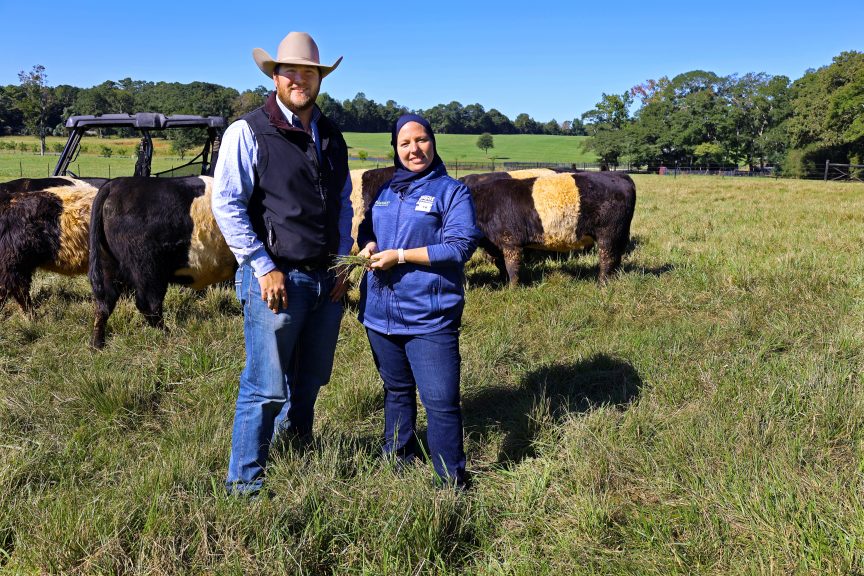
Today, Dillard stands as a prominent figure in the forage industry. Much of her research and programming relates to promoting sustainability in pasture ecosystems.
Her work with integrated livestock systems helps farmers diversify their operations in ways that are sustainable from both an environmental and economic perspective. In these systems, there is often concern about how the animals impact the soil. However, Dillard’s research in this area helps farmers understand how they can implement such a system without negatively impacting their land. Another area of Dillard’s programming comes through her work with biostimulants to create more efficient forage systems.
When it comes to working with farmers and the public, as a woman who is Muslim and wears a hijab, Dillard knows that people may make certain assumptions about her. However, she has found that as soon as they get to know her, those assumptions don’t matter, because they see that she is there to help them.
“I have never felt that my gender or the way I dress hinders me,” Dillard said. “I am there to try to solve their problems, and if I don’t have the answers, I am going to get them. That is what matters. In general, I feel like people appreciate when they know somebody cares, and that is what it comes down to.”
Through her work as an Extension specialist and associate professor, Dillard shows her passion for forages and making producers more successful. Looking forward, she hopes that she can continue the work that she and the rest of the team are doing to help farmers.
“If I am telling someone the same thing today that I am telling people 40 years from now, I am doing something wrong,” Dillard said. “To me, my job with the college and with Extension is almost seamless, because I am able to do research and then help farmers apply that to their farms.”
In her role as an associate professor, Dillard has used her story and unique experiences to help students find their life’s passion. She is a firm believer that students need to open as many doors as possible. They should never be afraid to try something different because their true passion may just be standing on the other side. She also wants students to know that their degree doesn’t define who they are, and it doesn’t put them in a box. Every single opportunity is out there, just waiting for you to take advantage of it.
“I thought agriculture meant that I had to go back to the farm, but there is a whole other side to agriculture,” Dillard said. “Agriculture is a much bigger world than you think it is, and an agriculture degree can take you anywhere you want to go.”
So, that’s the story of Leanne Dillard, a farm girl from northwest Georgia whose life was a winding road back to agriculture, with many stops along the way. Even with all its curves and all its stops, it was the road that let her discover who she was and what she wanted to do in life. For Dillard, every day is a surprise, and that is why she loves her job. Whatever the future holds for her, she hopes that she will be doing what she does now: spending most of her time on the road, talking to farmers and cutting grass, because, as she puts it, “That’s what I like to do.”

